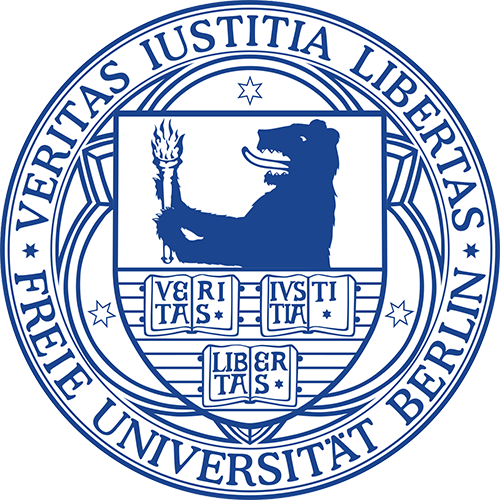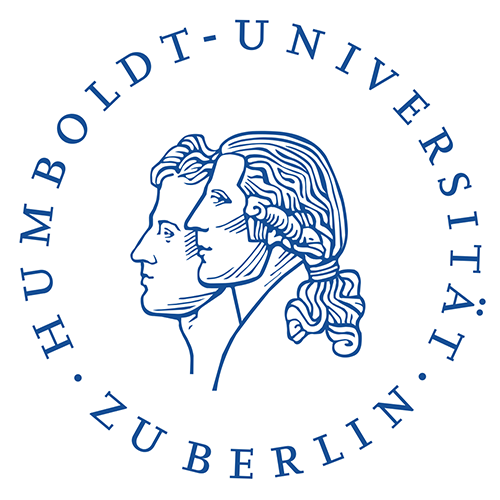MBBS in Germany
MBBS IN Germany OVERVIEW
MBBS in Germany has gained significant popularity among Indian students in recent years. The country’s approach to higher education, including its comparatively low-cost structure, has made it an attractive destination. While the education isn’t completely free, the tuition fees are notably affordable. Pursuing an MBBS degree in Germany also involves the immersion of learning the German language, guided by qualified instructors. The range of programs available caters to both local and international students.
Each year, a substantial number of Indian students, both male and female, aspire to secure admission in the MBBS program. The demand often surpasses the available medical seats in German colleges and universities. The appeal lies in the exceptional quality of medical education and the stimulating learning environment, drawing students from various regions of India to study MBBS in Germany.
Germany boasts numerous esteemed medical colleges and universities, some of which extend their offerings to postgraduate education alongside the MBBS program. Some institutions even provide the opportunity for free medical education through scholarship opportunities. The experience of those pursuing MBBS in Germany is widely positive, with many graduates embarking on successful medical careers upon completing their studies. German medical universities hold approvals from the National Medical Commission (NMC) and the World Health Organization (WHO), adding to their credibility and global recognition.
In essence, MBBS in Germany stands as a prominent choice for Indian students, offering quality education, language immersion, a range of program options, and the potential for rewarding medical careers post-graduation.
Georgia Medical College Admission Form






The Courses Offered by Germany Medical Universities
German medical universities offer a wide range of medical and healthcare-related courses at undergraduate, postgraduate, and doctoral levels. Some of the prominent courses offered by medical universities in Germany include:
Medicine (MBBS): The most sought-after course for international students, including Indians, is the Medicine program (equivalent to MBBS) that leads to a “Dr. med.” degree. This program trains students to become medical doctors and involves a combination of theoretical study, practical training, and clinical rotations.
Dentistry: Dentistry programs are also popular and lead to the degree of “Dr. med. dent.” Students learn about oral health, dental procedures, and patient care.
Pharmacy: Pharmacy programs cover pharmaceutical sciences, drug development, medication counseling, and patient care. Graduates earn a “Dr. rer. nat.” or “PharmD” degree.
Biomedical Sciences: This interdisciplinary field explores the interface between biology and medicine, encompassing subjects like genetics, cell biology, and medical technology.
Nursing: Nursing programs train students to provide high-quality patient care, focusing on clinical skills, healthcare management, and patient education.
Physiotherapy: Physiotherapy programs teach students about physical rehabilitation, therapeutic techniques, and patient recovery.
Public Health: Public health courses address community health issues, epidemiology, health promotion, and disease prevention.
Medical Informatics: This program combines medical knowledge with information technology, preparing graduates to work on healthcare data management, software development, and health IT systems.
Biomedical Engineering: Biomedical engineering courses cover the application of engineering principles to healthcare, including medical device design, diagnostics, and research.
Health Economics: Health economics programs focus on the economic aspects of healthcare systems, policy analysis, and resource allocation.
Medical Research: Many universities offer research-focused programs leading to doctoral degrees (Ph.D.) in various medical and life sciences disciplines.
Clinical Specializations: After completing the basic medical program, students can pursue clinical specialization programs in fields like surgery, internal medicine, pediatrics, and more.
It’s important to note that the availability of specific courses and their names may vary between universities. Additionally, the language of instruction can be German or English, depending on the university and program. Before applying, carefully review the course offerings of the specific medical universities in Germany to find the program that aligns with your interests and career goals.
The Intakes for MBBS in Germany
In Germany, the academic year is typically divided into two semesters: the Winter Semester (Wintersemester) and the Summer Semester (Sommersemester). The start dates and application deadlines for these semesters can vary between universities and programs. However, here is a general overview of the intakes for MBBS or medical programs in Germany:
Winter Semester (Wintersemester):
- Application Period: Usually around May to July (for programs starting in October)
- Semester Start: October
Summer Semester (Sommersemester):
- Application Period: Usually around November to January (for programs starting in April)
- Semester Start: April
It’s important to note that these timeframes can vary, and some universities might have different application deadlines or intake schedules for specific programs. Additionally, due to the competitive nature of medical programs, it’s advisable to apply as early as possible within the application period.
When considering applying for MBBS programs in Germany, make sure to check the official website of the specific university and program you are interested in. Universities often provide detailed information about application procedures, deadlines, and important dates for international applicants.
Keep in mind that studying medicine in Germany involves a competitive selection process, and meeting the application deadlines is crucial. As application processes and dates can change, always refer to the most up-to-date information provided by the university to ensure a smooth application process for your desired intake.
Quick Highlights – MBBS in Germany
In this section, we will give you a brief about the highlights of the course.
| Particulars | Highlights |
| Name of the Course | Bachelor of Medicine and Bachelor of Surgery (MBBS) |
| No. of MBBS colleges in Germany | Approx. 30+ Colleges in Germany |
| Type of colleges | Both Private & Government |
| Medium of Instruction | German or English |
| Duration | 5+1 (1 year of Internship) |
| Admission Requirement | High GPA in secondary school, German language proficiency Do 1-year preparatory course at Studienkellog and pass “Feststellungsprüfung” |
| Curriculum | 2-year pre-clinical study 3-year clinical study 1-year practical placement |
| Universities Recognition | MCI & WHO |
Advantages of studying MBBS in Germany
Studying MBBS in Germany offers numerous advantages for international students, including those from India. Here are some key benefits of pursuing an MBBS degree in Germany:
Quality Education: German universities are renowned for their high academic standards, cutting-edge research, and rigorous medical education programs.
Global Recognition: A medical degree from Germany holds international recognition and is highly regarded worldwide, enhancing your career prospects.
Affordability: While not completely free, many public universities in Germany offer low or no tuition fees for international students, making it an affordable option compared to other countries.
English-Taught Programs: Several universities offer MBBS programs in English, eliminating the language barrier for international students.
Research Opportunities: Germany is a hub of scientific and medical research, providing ample opportunities for students to engage in cutting-edge research projects.
Clinical Exposure: The medical curriculum in Germany emphasizes practical training and clinical experience, ensuring that students are well-prepared for their medical careers.
Advanced Healthcare System: You’ll have the opportunity to learn from and work alongside skilled medical professionals in one of the world’s most advanced healthcare systems.
Multicultural Environment: Germany hosts a diverse community of international students, allowing you to interact with peers from around the world and experience different cultures.
Safety and Quality of Life: Germany is known for its safety, efficient public transportation, high-quality infrastructure, and excellent healthcare services.
EU Recognition: Germany’s medical degrees are recognized within the European Union (EU), facilitating potential mobility and practice within EU member countries.
Postgraduate Opportunities: After completing your MBBS, you can explore various specialization options and pursue further education in Germany or other countries.
Strong Job Prospects: Graduates of German medical programs often have a competitive edge in the job market due to the country’s reputable education system.
Scholarship Opportunities: Some universities and organizations offer scholarships for international students, easing the financial burden.
Cultural and Recreational Opportunities: Germany offers a rich cultural scene, historic sites, vibrant cities, and diverse recreational activities.
Path to Residency: Graduates of medical programs in Germany may have the opportunity to apply for a medical residency in the country, contributing to their professional development.
It’s important to thoroughly research and understand the specific requirements, application procedures, and curriculum of the MBBS program you’re interested in. While studying MBBS in Germany offers numerous advantages, it’s essential to make an informed decision that aligns with your career goals and aspirations.
Eligibility Criteria for MBBS in Georgia for Indian students
As of my last knowledge update in September 2021, here are the general eligibility criteria for Indian students who wish to pursue MBBS in Georgia:
Academic Qualifications: Applicants should have successfully completed their higher secondary education (12th grade) with a strong background in Biology, Chemistry, and Physics. Some universities may also require a minimum aggregate score in these subjects.
NEET Qualification: Many medical universities in Georgia require Indian students to have a valid score in the National Eligibility cum Entrance Test (NEET) conducted by the National Testing Agency (NTA) in India. The specific NEET score required can vary between universities.
Language Proficiency: Most universities in Georgia offer MBBS programs in English. Therefore, applicants may need to demonstrate proficiency in the English language through standardized tests like IELTS or TOEFL. However, some universities might waive this requirement if your previous education was conducted in English.
Age Limit: Some universities have specific age limits for MBBS admissions. Generally, applicants should be between 17 to 25 years old.
Documentary Requirements: Applicants will need to provide transcripts of their academic qualifications, a valid passport, a passport-sized photograph, a statement of purpose (SOP), and letters of recommendation.
Admission Test: Some universities may require applicants to take an admission test or interview as part of the selection process.

Admission Process to study MBBS in Germany for Indian students
The admission process to study MBBS in Germany for Indian students can be competitive, and it involves several steps. Here is a general overview of the admission process:
Research and Choose a University: Research different universities in Germany that offer English-taught MBBS programs. Consider factors such as program curriculum, faculty, facilities, location, and admission requirements.
Meet Eligibility Criteria: Ensure you meet the eligibility criteria of the chosen university, including academic qualifications, NEET score, and language proficiency (usually IELTS or TOEFL).
Language Proficiency: If the MBBS program is taught in English, you may need to provide proof of English language proficiency through standardized tests like IELTS or TOEFL. Some universities may waive this requirement if your previous education was conducted in English.
Prepare Required Documents: Collect and prepare all required documents, which may include academic transcripts, certificates, NEET scorecard, passport-sized photographs, passport copy, statement of purpose (SOP), letters of recommendation, and any other documents specified by the university.
Apply Online: Most universities have an online application portal. Create an account, complete the application form, and upload the necessary documents.
Pay Application Fee: Pay the application fee as required by the university.
Wait for Admission Offer: After submitting your application, you will need to wait for the university’s response. If you meet their criteria, you may receive a conditional or unconditional admission offer.
Acceptance and Payment: If you receive an admission offer, follow the instructions to accept it. Pay any required fees, such as tuition fees or enrollment fees.
Visa Application: Apply for a student visa at the German Embassy or Consulate in your home country. You will need to provide proof of financial resources, health insurance, and other relevant documents.
Health Check and Enrollment: Once you arrive in Germany, complete a health check if required by the university. Enroll in the university, attend orientation, and complete any necessary paperwork.
Begin Studies: Start your MBBS studies as per the university’s academic calendar.
It’s important to note that the admission process may vary between universities and can change from year to year. Therefore, it’s crucial to carefully review the admission requirements and procedures of the specific university you are interested in applying to.
Additionally, keep in mind that studying in Germany might involve meeting specific visa and residency requirements, as well as adjusting to a new culture and education system. Be sure to stay informed and seek guidance from the international student office of your chosen university to ensure a smooth transition and successful application process.
Requisite Documents for a visa to study in Germany for MBBS
When applying for a student visa to study MBBS in Germany, you’ll need to provide a set of documents to demonstrate your eligibility and readiness for the program. While the specific requirements may vary depending on your country of residence and the German Embassy or Consulate you’re applying to, here is a general list of requisite documents for a student visa to study MBBS in Germany:
Visa Application Form: Complete and sign the student visa application form, which can usually be downloaded from the official website of the German Embassy or Consulate in your country.
Valid Passport: Ensure your passport is valid for the duration of your intended stay in Germany and has at least two blank pages for visa stamps.
Letter of Admission: A formal letter of admission from the German university confirming your acceptance into the MBBS program.
Proof of Financial Resources: Provide evidence that you have sufficient funds to cover your living expenses and tuition fees for the entire duration of your studies. This could include a blocked bank account, scholarship award letters, or financial support from parents or sponsors.
Health Insurance: Proof of health insurance coverage that meets the requirements of the German government. It should cover medical and hospitalization costs for the entire duration of your stay.
Proof of Accommodation: Documentation of your accommodation arrangements in Germany, such as a rental agreement or a confirmation letter from a student dormitory.
Passport-Sized Photographs: Recent passport-sized photographs that adhere to the specifications set by the German Embassy or Consulate.
Proof of Academic Qualifications: Academic transcripts and certificates from your previous education, including your higher secondary education (12th grade) and any relevant degrees.
Language Proficiency: Proof of language proficiency, if required, such as results of a recognized English language test like IELTS or TOEFL.
Statement of Purpose (SOP): A written statement outlining your motivation for studying MBBS in Germany, your career goals, and how the program aligns with your aspirations.
Biometric Data: Depending on your country of residence, you may need to provide biometric data (fingerprints and photograph) as part of the visa application process.
Visa Fee: Payment of the required visa application fee.
Travel Itinerary: Proof of your travel arrangements, including flight reservations or itinerary.

Reasons to Opt for Study MBBS in Germany
Opting to study MBBS in Germany offers a range of compelling reasons that make it an attractive choice for many international students, including those from India. Here are some of the key reasons to consider:
High-Quality Education: German universities are renowned for their high academic standards and quality of education. Pursuing an MBBS degree in Germany ensures that you receive a robust and comprehensive medical education.
International Recognition: A medical degree from a German university holds global recognition and is highly regarded by employers and medical institutions worldwide.
Affordable Tuition Fees: While education in Germany is not entirely free for international students, many universities offer low or no tuition fees, making it a cost-effective option compared to other countries.
English-Taught Programs: Several universities in Germany offer MBBS programs in English, eliminating language barriers and making it accessible to international students.
Research Opportunities: Germany is a hub for scientific research and innovation. As an MBBS student, you’ll have the chance to engage in cutting-edge research and contribute to advancements in the medical field.
Clinical Exposure: The medical curriculum in Germany emphasizes practical training and clinical experience, ensuring that you develop strong clinical skills and hands-on expertise.
Advanced Healthcare System: Studying in Germany allows you to observe and learn from a highly developed healthcare system, enhancing your understanding of medical practices and patient care.
Cultural Diversity: Germany is a melting pot of cultures, offering you the opportunity to interact with peers from around the world and experience a rich cultural exchange.
Safety and Quality of Life: Germany is known for its safety, efficient public transportation, high living standards, and excellent healthcare services.
Global Networking: Studying in Germany provides ample opportunities to connect with fellow students, professors, and professionals from diverse backgrounds, creating a valuable network for your future career.
Path to Specialization: After completing your MBBS, you can explore various specialization options and pursue further education in Germany or other countries.
Career Opportunities: Graduates of German medical programs often have a competitive edge in the job market due to the country’s reputable education system and global recognition.
Scholarship Opportunities: Some universities and organizations offer scholarships for international students, further easing the financial burden.
Quality of Life: Germany offers a high quality of life, with efficient public services, cultural attractions, outdoor activities, and a well-developed infrastructure.
EU Recognition: German medical degrees are recognized within the European Union (EU), which can facilitate practice and mobility within EU member countries.
Before making a decision, it’s important to thoroughly research and understand the admission requirements, curriculum, and lifestyle in Germany. Consult with academic advisors and consider your career goals to ensure that studying MBBS in Germany aligns with your aspirations and future plans.
Top Medical Universities in Germany (MCI Recognized)
Top-ranked, MCI approved, and the best medical colleges in Germany house more than 5000 Indian students and will proliferate in number as many enroll to study MBBS in Georgia 2021-22. You could be one of them if you are already looking to study MBBS in Europe .

MBBS at Georgian National University (SEU)
The University of Georgia is renowned for its excellent academic offerings, vibrant social scene, and outstanding athletic achievements. Due to its international rank of 180 and the national rank of 70, the University of Georgia is the most popular choice for medical candidates who seek to pursue MBBS from abroad. The University of Georgia is ranked 204th in terms of educational quality.
| Location | Tbilisi |
| Eligibility | Minimum 50% in HSC, NEET qualification for students wants to practice profession in India |
| Medium | English |
| Ranking | Country Rank - 6 World Rank - 7923 |
| Deadline | March |

MBBS at Tbilisi State Medical University TSMU
Tbilisi State Medical University is one of Georgia's leading medical schools among the several that the NMC has recognised. The Tbilisi State Medical University prioritises two areas: high-quality instruction and qualified teachers. TSMU is renowned for its standing, reputation, executive board members, statistics, and references as Georgia's top medical institution.
| Location | Tbilisi |
| Eligibility | 50% in PCB |
| Medium | English |
| Ranking | Country Survey Rank - 1 World Rating - 4.8 Star |
| Deadline | March |
MBBS at David Tvildiani Medical University
Established in 1990 and situated in Tbilisi, Georgia, DTMU offers all students a profound educational environment. The university's own medical division, AIETI Medical School, has one faculty. They are able to increase their own standing in the medical community with the aid of the general medicine faculty. Additionally, DTMU offers courses for post-graduation, clinical practises, and preparation for the primary admission test.
| Location | Tbilisi |
| Eligibility | Minimum 50% in HSC, NEET qualification for students wants to practice profession in India |
| Medium | English |
| Ranking | Country Survey Rank - 3rd World Rating - 4.6 Star |
| Deadline | March |

MBBS at Batumi Shota Rustabeli State University, Georgia
The university is located in the Republic of Adjara's capital, Batumi, Georgia. Georgian poet Shota Rustaveli served as the university's naming inspiration. The University of Batumi Shota Rustaveli was established in 1923. To guarantee that its students receive a top-notch education, the university employs 387 visiting academics, 71 researchers, and 273 full-time instructors. More than 1000 students study medicine in India, coming from more than 50 nations.
| Location | Batumi |
| Eligibility | Minimum 50% in HSC, NEET qualification for students wants to practice profession in India |
| Medium | English |
| Ranking | Country Rank - 6 World Rank - 7923 |
| Deadline | March |
MBBS in Germany Fee Structure : 2023-24
| Top Universities | Tuition Fee (EUR) | Tuition Fee (INR) |
|---|---|---|
| Ludwig-Maximilians-Universität Munich | 152 | 13,405 |
| Technical University of Munich | 152 | 13,405 |
| Heidelberg University | 174.35 | 15,385 |
| Freie Universität Berlin | 193 | 17,031 |
| RWTH Aachen University | 310 | 27,355 |
| Goethe-University Frankfurt | 369 | 32,561 |
| Philipps-Universität Marburg | 2,200 | 1.94 lakhs |
Course structure and details: MBBS in Germany
The course structure for MBBS (or its equivalent) in Germany generally follows a well-structured curriculum that combines theoretical knowledge, practical training, and clinical rotations. While specific details can vary between universities, here’s an overview of the typical course structure and details for studying MBBS in Germany:
Duration: The MBBS program in Germany usually spans six years, consisting of pre-clinical and clinical phases.
Pre-Clinical Phase (First and Second Years):
- Basic Sciences: The first two years typically focus on foundational medical sciences, including subjects like Anatomy, Physiology, Biochemistry, Pharmacology, Microbiology, and Pathology.
- Lectures and Labs: Students attend lectures, laboratory sessions, and seminars to gain a strong theoretical understanding of medical concepts.
Pre-Clinical Examinations: At the end of the pre-clinical phase, students may need to pass internal examinations to progress to the clinical phase.
Clinical Phase (Third to Sixth Years):
- Clinical Rotations: The next four years involve clinical rotations, where students gain practical experience in various medical specialties, such as Internal Medicine, Surgery, Pediatrics, Obstetrics and Gynecology, Psychiatry, and more.
- Clinical Training: Students work directly with patients under the supervision of experienced doctors, learning to diagnose, treat, and manage medical conditions.
- Hospital Rotations: Students rotate through different hospital departments to gain exposure to a wide range of medical cases.
- Electives: Some programs offer elective rotations, allowing students to explore specific areas of interest.
Clinical Examinations: Throughout the clinical phase, students are assessed through practical clinical examinations, oral presentations, and written assessments.
Final Examinations: Towards the end of the program, students undergo comprehensive final examinations, which may include both written and practical components.
Thesis and Research: Some universities require students to complete a research thesis or project during their studies, fostering research skills and critical thinking.
Language Proficiency: While many MBBS programs in Germany are taught in English, students may still have opportunities to learn the German language to communicate effectively with patients and colleagues.
Practical Training: The clinical phase involves hands-on experience, including interacting with patients, conducting physical examinations, and assisting in medical procedures.
Electives and Specializations: Depending on the university and program, students may have the chance to choose electives or specialize in specific medical areas during their clinical rotations.
Licensing Examination: After completing the program, students are typically required to pass a medical licensing examination to practice medicine in Germany or pursue further specialization.
Course Duration: MBBS in Germany
The course duration for studying MBBS (or its equivalent) in Germany is generally six years. This duration includes both the pre-clinical and clinical phases of medical education. Here’s a breakdown of the typical course duration for MBBS in Germany:
Pre-Clinical Phase: The pre-clinical phase usually spans the first two years of the program. During this phase, students focus on foundational medical sciences, including subjects such as Anatomy, Physiology, Biochemistry, Pharmacology, Microbiology, and Pathology.
Clinical Phase: The clinical phase spans the remaining four years of the program. In this phase, students engage in clinical rotations, gaining practical experience in various medical specialties by working directly with patients under the supervision of experienced doctors.
It’s important to note that the course duration can vary slightly between universities and may include additional factors such as breaks, holidays, and research or elective periods. Additionally, the overall course duration may be influenced by the specific curriculum and program structure of the university you choose.
Before applying, it’s recommended to check the official website of the university offering the MBBS program in Germany for the most accurate and up-to-date information regarding the course duration, curriculum, and any other program-specific details.
Academic Calendar: Intake in 2023
The academic calendar for MBBS programs in Germany, including the exact start dates for intakes in 2023, can vary between universities. German universities typically follow a two-semester system: the Winter Semester (Wintersemester) and the Summer Semester (Sommersemester). The specific dates for each semester may differ, and it’s important to refer to the official website of the university you are interested in for the most accurate and up-to-date information.
However, as a general guideline, here’s an overview of the academic calendar and intakes in Germany:
Winter Semester (Wintersemester):
- Application Period: Around May to July
- Semester Start: October
Summer Semester (Sommersemester):
- Application Period: Around November to January
- Semester Start: April
Please note that these timeframes are approximate and may vary based on the university and program. It’s essential to check the official website of the specific university offering the MBBS program for the exact application deadlines, semester start dates, and any other important dates related to the academic calendar for the year 2023.
Keep in mind that the application process and timelines may change, so it’s advisable to start your research and preparation well in advance to ensure a smooth application and admission process for the 2023 intake.
Medium of teaching in Germany
In Germany, the medium of instruction for higher education programs, including MBBS, can vary depending on the university and the specific program. However, many universities in Germany offer international programs, including MBBS, in the English language. This is particularly beneficial for international students who may not be proficient in the German language.
English-taught programs are designed to attract a diverse range of students from around the world, making education accessible to non-German speakers. As a result, you can find numerous medical universities in Germany that offer MBBS programs entirely in English.
It’s important to research and carefully review the language requirements and medium of instruction for the specific university and MBBS program you are interested in. While many universities offer English-taught programs, there may still be opportunities to learn the German language for effective communication with patients and colleagues during clinical rotations.
Always refer to the official website of the university or contact their international admissions office to confirm the language of instruction and any language proficiency requirements for the MBBS program you wish to pursue.
Lifestyle in Germany
Germany offers a high quality of life and a diverse lifestyle that caters to various preferences and interests. Here are some key aspects of the lifestyle in Germany:
Cultural Richness: Germany has a rich cultural heritage, with numerous museums, art galleries, theaters, and music venues. The country is known for its contributions to classical music, literature, and philosophy.
Outdoor Activities: Germans value outdoor activities and recreational opportunities. You can explore beautiful parks, forests, lakes, and hiking trails. Biking is also a popular mode of transportation and leisure.
Efficient Public Transportation: Germany has an extensive and efficient public transportation system, including trains, trams, buses, and subways. This makes it easy to travel within cities and across the country.
Health and Well-Being: Germans emphasize a healthy lifestyle, with access to fitness centers, sports clubs, and wellness activities. The country has a strong healthcare system that provides quality medical care.
Culinary Delights: German cuisine includes a variety of hearty and flavorful dishes. You can enjoy traditional sausages, pretzels, schnitzels, and regional specialties. International cuisine options are also readily available.
Education and Research: Germany is known for its high-quality education and research institutions. The country’s emphasis on innovation and intellectual pursuits attracts students and professionals from around the world.
Work-Life Balance: Germans value work-life balance, with reasonable working hours and a strong emphasis on leisure time. Many businesses close early on weekends, and vacations are considered important.
Festivals and Events: Germany hosts a wide range of festivals and events throughout the year. Oktoberfest in Munich, Christmas markets, and cultural celebrations are highlights.
Multicultural Environment: Germany is home to a diverse population, with people from various cultural backgrounds and nationalities. This multicultural environment offers opportunities for cross-cultural interactions and learning.
Historic and Modern Cities: Germany boasts a mix of historic and modern cities. You can explore charming medieval towns, vibrant urban centers, and architectural landmarks.
Environmental Consciousness: Environmental sustainability is important in Germany, with efforts toward green energy, recycling, and eco-friendly practices.
Social Interaction: Germans value social interactions, whether it’s enjoying a meal with friends, attending cultural events, or participating in community activities.
Personal Freedom: Germany places a strong emphasis on individual rights, personal freedom, and tolerance. This contributes to an inclusive and open society.
It’s important to note that each individual’s experience of lifestyle in Germany can vary based on factors such as location, personal preferences, and cultural adaptation. Overall, Germany offers a balanced lifestyle that combines cultural exploration, professional growth, outdoor activities, and a strong sense of community.
General hostel and accommodation facilities in universities of Germany MBBS
Accommodation options for international students, including those pursuing MBBS, vary across universities in Germany. While specific facilities and availability can differ, here are some general types of accommodation that you might find at German universities:
Student Dormitories (Studentenwohnheim): These are managed by universities or student services organizations. Dormitories offer affordable living options with furnished rooms, shared kitchens, and communal areas. They provide an opportunity to interact with fellow students from around the world.
Private Apartments (Wohnung): Some universities offer assistance in finding private apartments for students. These apartments can range from studio units to shared flats with fellow students.
Shared Apartments (WG - Wohngemeinschaft): This involves renting a room in an apartment shared with other students. It’s a popular choice for those who want a more independent living experience while sharing costs.
Homestays: Living with a local host family can provide a cultural immersion experience and opportunities to practice the German language.
Private Accommodation: Students can explore private rental options outside the university’s provided accommodations. This gives more flexibility in choosing location and amenities.
Temporary Accommodation: For the initial days upon arrival, students might choose temporary accommodations like hostels or hotels until they secure more permanent housing.
Here are some aspects to consider when seeking accommodation:
- Location: Proximity to the university, public transportation, and essential amenities such as grocery stores and healthcare facilities.
- Cost: Different types of accommodation have varying costs. Student dormitories are often more budget-friendly.
- Amenities: Check what facilities are included, such as internet access, laundry, and common areas.
- Availability: Apply for accommodation early, as there might be limited spaces, especially in popular cities.
- Lease Terms: Be aware of lease agreements and terms before signing.
- Application Process: Universities may provide information and assistance in securing accommodation, so check their official websites or contact their international office.
When applying to study MBBS in Germany, it’s recommended to research the accommodation options offered by your chosen university. Many universities provide information and resources to assist international students in finding suitable housing options, ensuring a comfortable and convenient living arrangement during your studies.
Safety of Indian students in Germany
Germany is generally considered a safe and welcoming country for international students, including those from India. The country prioritizes the safety and well-being of its residents, and there are several factors that contribute to the safety of Indian students in Germany:
Low Crime Rate: Germany has a relatively low crime rate compared to many other countries. Violent crimes and incidents targeting international students are rare.
Effective Law Enforcement: The German police and law enforcement agencies are well-trained and responsive, ensuring a safe environment for residents and visitors.
Rule of Law: Germany upholds the rule of law, and instances of corruption are minimal. The legal system is transparent and accessible to all residents.
Multicultural Environment: Germany is a diverse and multicultural country that values inclusion and tolerance. This contributes to a welcoming atmosphere for international students.
University Support: German universities often have dedicated international student offices that provide support and assistance to international students, helping them integrate and navigate life in Germany.
Healthcare Services: Germany offers excellent healthcare services, ensuring that students have access to medical care when needed.
Efficient Public Services: Germany’s infrastructure, public transportation, and emergency services are well-developed and efficient.
Community Support: Indian students often form communities and support networks among themselves, contributing to a sense of belonging and safety.
While Germany is generally safe, it’s important for international students to take common-sense precautions, such as being aware of their surroundings, following local laws and regulations, and taking care of personal belongings. Additionally, staying informed about local customs and cultural norms can help students integrate into German society smoothly.
If you ever encounter any issues or concerns during your stay in Germany, do not hesitate to reach out to the university’s international student office, local authorities, or the nearest Indian embassy or consulate for assistance. Overall, with reasonable precautions and awareness, Indian students can enjoy a safe and enriching experience while studying in Germany.
NEET Requirement for Studying MBBS Germany
The NEET (National Eligibility cum Entrance Test) is not a requirement for studying MBBS in Germany. However, if you have qualified for the NEET, it can be considered as one of the factors that will be evaluated by the German universities while assessing your application.
The following are the general requirements for studying MBBS in Germany:
- You must have completed your 12th standard with Biology, Physics, and Chemistry as compulsory subjects.
- You must have a minimum of 60% aggregate marks in your 12th standard.
- You must have passed the German language proficiency test (TestDaF or DSH).
- You must have a good academic record and extracurricular activities.
Some universities may also require you to have completed certain pre-medical courses or have work experience in the healthcare sector.
Once you have met the basic requirements, you can start applying to German universities. The application process usually begins in the fall of the year before you want to start your studies.
Benefits of MBBS in Germany after NEXT Exam
There are many benefits of studying MBBS in Germany after NEXT exam. Here are some of them:
- High-quality education: German universities are known for their high-quality education. The MBBS programs in Germany are taught in English and are fully accredited.
- Low tuition fees: The tuition fees for MBBS in Germany are very low compared to other countries. You can expect to pay around €3,000-€5,000 per year in tuition fees.
- Excellent infrastructure: German universities have excellent infrastructure and facilities. The medical schools are well-equipped with modern laboratories, libraries, and hospitals.
- Opportunity to work and live in Germany: After graduating from an MBBS program in Germany, you will be eligible to work and live in Germany. Germany is a developed country with a high standard of living.
- Globally recognized degree: The MBBS degree from a German university is recognized all over the world. This will give you the opportunity to work in any country of your choice.
Here are some of the additional benefits of studying MBBS in Germany after NEXT exam:
- No entrance exam: There is no entrance exam required for MBBS in Germany. However, you will need to meet the basic eligibility requirements, such as having completed your 12th standard with Biology, Physics, and Chemistry as compulsory subjects, and having a minimum of 60% aggregate marks.
- Easy visa process: The visa process for studying in Germany is relatively easy. You will need to apply for a student visa at the German embassy or consulate in your home country.
- Supportive environment: German universities are very supportive of international students. They offer a variety of support services, such as language courses, counseling, and financial assistance.
If you are looking for a high-quality, affordable, and internationally recognized MBBS program, then Germany is a great option. The benefits of studying MBBS in Germany after NEXT exam are many and can help you achieve your dream of becoming a doctor.
About Germany
Germany, officially known as the Federal Republic of Germany, is a country located in Central Europe. It is known for its rich history, vibrant culture, technological advancements, and strong economy. Here are some key aspects about Germany:
Geography and Cities: Germany is bordered by nine countries and has a diverse landscape that includes the Alps in the south, forests, rivers, and a coastline along the North Sea and Baltic Sea. Some of its major cities include Berlin (the capital), Munich, Hamburg, Frankfurt, and Cologne.
Language: The official language is German. While German is widely spoken, many Germans also speak English, especially in urban areas and within the younger population.
Culture and Heritage: Germany has a deep cultural heritage, with significant contributions to art, music, literature, philosophy, and science. It is known for its classical composers (like Beethoven and Bach), famous philosophers (such as Kant and Nietzsche), and contributions to modern art movements.
Economy: Germany has one of the largest and most powerful economies in the world. It is known for its strong manufacturing sector, technological innovations, and exports. The country is home to numerous global companies in various industries.
Education and Research: Germany is renowned for its high-quality education system, including its universities and research institutions. It has a strong emphasis on scientific research and innovation.
Transportation: Germany has an efficient and well-developed transportation network, including an extensive train system, highways, and public transportation in cities.
Cuisine: German cuisine is diverse and varies by region. It includes dishes such as sausages (Wurst), pretzels, schnitzels, and a variety of bread and pastries. Beer is an integral part of German culture, with a long history of brewing.
Tourist Attractions: Germany offers a range of tourist attractions, including historic castles, museums, cultural events, festivals, and natural landscapes. Popular destinations include the Brandenburg Gate, Neuschwanstein Castle, the Berlin Wall, and the Black Forest.
Healthcare: Germany has a comprehensive healthcare system that provides access to quality medical care for its residents.
Society and Lifestyle: Germans value punctuality, efficiency, and a strong work ethic. The country places a high emphasis on environmental sustainability and quality of life.
Political System: Germany is a federal parliamentary republic with a Chancellor as its head of government. It has a stable political system and is a member of the European Union.
Historical Significance: Germany has a complex history, including its role in both World Wars and the Cold War. The country has actively worked towards reconciliation, peace, and European unity.
Overall, Germany offers a mix of historical significance, cultural richness, economic strength, and modern advancements, making it a fascinating and influential country in Europe and the world.
Enquiry now


Why Choose Blossom Global Education
Blossom Global Education is one of fastest growing and leading overseas education Consultant in West Bengal & in North East Part of India we have successfully placed over 800 + Indian students in renowned medical universities and colleges abroad. we also have best experienced counselors for MBBS in Bangladesh, offer personalized guidance to students and parents about MBBS in Bangladesh.
- Free MBBS counseling for students and parents by our experts Counsellors
- Association with best medical colleges in Bangladesh
- Provide prestigious scholarships and education loan assistance.
- Seamless admission process.
- Complete documentation process
- Air ticketing and student visa services.
- Guaranteed admission and visa approval.
For Any Enquiry RELATED TO MBBS ADMISSION
Call us at
+91 9830111782
E-mail us at
Our office
106-b, Shyama Prasad Mukherjee Rd, Kalighat, Kolkata, West Bengal 700026
